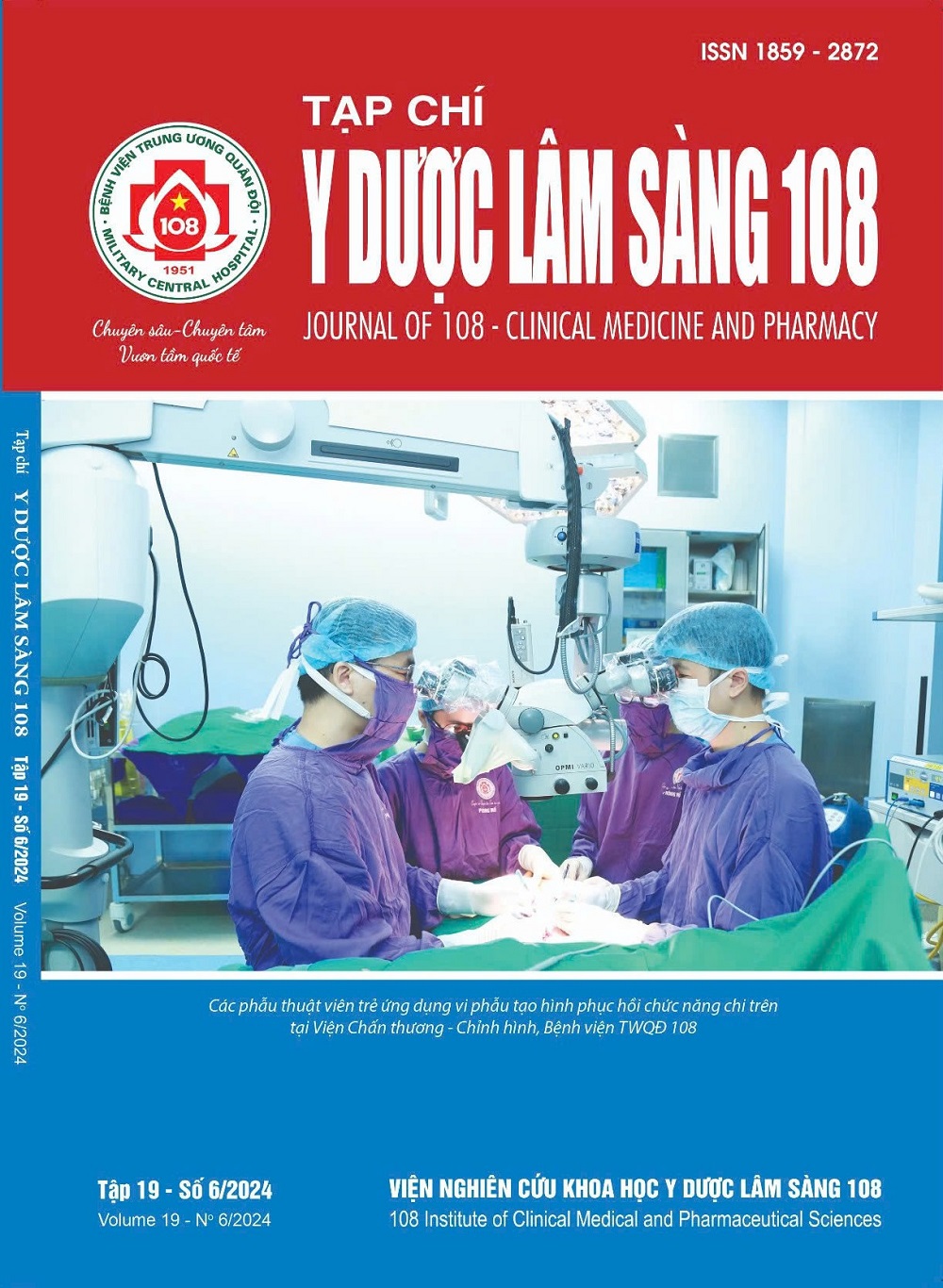Về Sự thay đổi kiến thức của phụ nữ mắc ung thư sau khi tham gia chương trình giáo dục chăm sóc sức khỏe tâm thần
Main Article Content
Keywords
Tóm tắt
Mục tiêu: Đánh giá sự thay đổi về kiến thức của phụ nữ mắc ung thư trước và sau khi tham gia chương trình giáo dục sức khỏe. Đối tượng và phương pháp: Chọn mẫu theo phương pháp quả cầu tuyết. Bộ công cụ Hiểu biết về Sức khỏe Tâm thần (Mental Health Literacy questionnaire - short version for adults (MHLq-SVa) phát triển bởi Luísa Campos và cộng sự được sử dụng trong nghiên cứu để đo lường kiến thức. Nghiên cứu được thực hiện trên 120 phụ nữ mắc ung thư đang điều trị tại các cơ sở, bệnh viện trên toàn quốc, trong khoảng thời gian từ tháng 02/2024 đến tháng 4/2024. Kết quả: Kiến thức chung về sức khỏe tâm thần của phụ nữ mắc ung thư đã được cải thiện đáng kể sau khi tham gia chương trình can thiệp, từ 33,3% lên 51,7% với điểm trung bình 64,17 ± 7,56 điểm. Có sự khác biệt có ý nghĩa thống kê về điểm trung bình trước và sau giáo dục sức khỏe đối với các nội dung bao gồm kiến thức về chăm sóc sức khỏe tâm thần (p<0,05), kiến thức về tìm kiếm sự trợ giúp (p<0,001) và kiến thức về các chiến lược tự chăm sóc bản thân (p<0,001) của phụ nữ mắc ung thư tham gia nghiên cứu. Kết luận: Kết quả cho thấy những thay đổi đáng kể trong kiến thức về chăm sóc sức khỏe tâm thần của phụ nữ mắc ung thư trước và sau khi tham gia chương trình chăm sóc sức khỏe.
Article Details
Các tài liệu tham khảo
2. Granek L, Nakash O, Ariad S et al (2019) Strategies and barriers in addressing mental health and suicidality in patients with cancer. Oncol Nurs Forum 46(5): 561-571.
3. K Harper FW, Schmidt JE, Beacham AO et al (2007) The role of social cognitive processing theory and optimism in positive psychosocial and physical behavior change after cancer diagnosis and treatment. Psychooncology 16(1):79-91.
4. Mitchell AJ, Chan M, Bhatti H et al (2011) Prevalence of depression, anxiety, and adjustment disorder in oncological, haematological, and palliative-care settings: A meta-analysis of 94 interview-based studies. The lancet oncology 12(2): 160-174.
5. WHO (2024) Sức khỏe tâm thần ở Việt Nam. Accessed 22/01/2024 .https://www.who.int/vietnam/vi/health-topics/mental-healt.
6. Lee SA, Nam CM, Kim YH et al (2020) Impact of onset of psychiatric disorders and psychiatric treatment on mortality among patients with cancer. The Oncologist 25(4): 733-742.
7. Campos L, Dias P, Costa M et al (2022) Mental health literacy questionnaire-short version for adults (MHLq-SVa): validation study in China, India, Indonesia, Portugal, Thailand, and the United States. BMC psychiatry 22(1):713.
8. Mohammed S, Ahmed S, Ebraheem M et al (2018) Effectiveness of psycho-educational nursing program on emotional distress and mental adjustment in women with breast cancer. Egyptian Journal of Health Care 9(1): 1-15.
9. Mohamed Ali N, Saied Adam S (2022) Effect of psycho-educational program on depressive symptoms, anxiety and stress coping strategies among women with breast cancer. Egyptian Journal of Health Care 13(4): 1220-1240.
10. Dastan NB, Buzlu S (2012) Psychoeducation intervention to improve adjustment to cancer among Turkish stage I-II breast cancer patients: a randomized controlled trial. Asian Pacific Journal of Cancer Prevention 13(10): 5313-5318.
11. Al-Krenawi A (2019) The impact of cultural beliefs on mental health diagnosis and treatment. In M. Zangeneh & A. Al-Krenawi (Eds.), Culture, diversity and mental health: Enhancing clinical practice (pp. 149–165). Springer Nature Switzerland AG. https://doi.org/10.1007/978-3-030-26437-6_9.
12. Leung J, Pachana NA, McLaughlin D (2014) Social support and health‐related quality of life in women with breast cancer: A longitudinal study. Psycho‐oncology 23(9): 1014-1020.
 ISSN: 1859 - 2872
ISSN: 1859 - 2872
